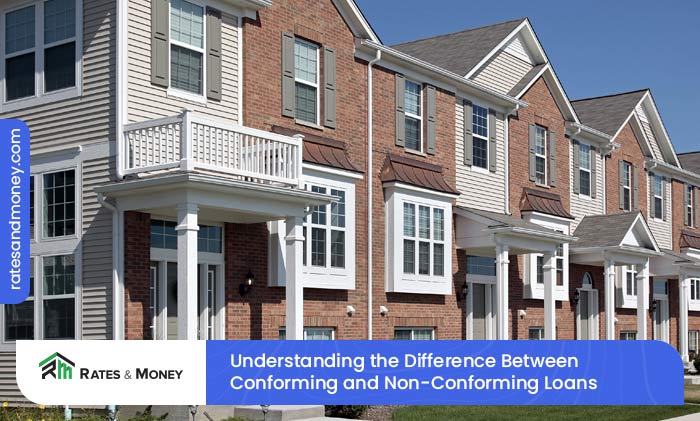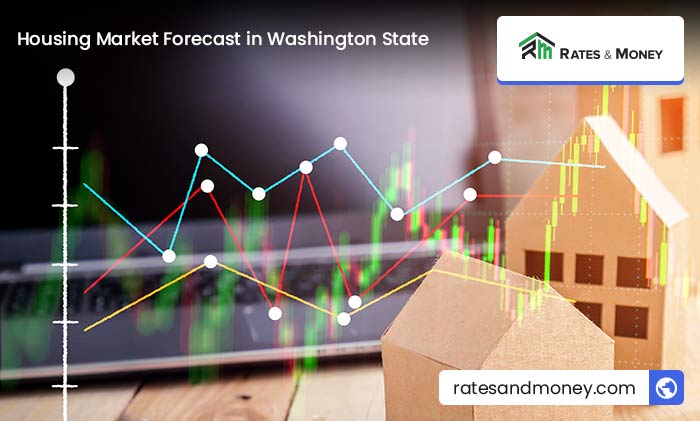The 10 Most Important Things To Know About Real Estate Investing

Table of Contents
Investing in real estate is a tried and true way to earn a solid income and build wealth over time. That said, it’s crucial to learn as much about real estate investing as possible before diving into this potentially lucrative business.
If you’re thinking of adding a real estate property to your investment portfolio, there are a few key things to know about this type of investing. Let’s dig into some of the more important factors to consider.
1. What Kind of Real Estate Investment Is Best?
There are several ways to invest in real estate, including the following:
REITs
A real estate investment trust (REIT) offers one of the easiest ways to invest in real estate because you don’t have to manage or maintain any physical property yourself. You also don’t have to purchase a property outright, which means the barrier to entry is lower.
A REIT owns, operates, or funds investment properties that generate an income. REITs make money either through rent or from the loans underlying the development, and the income is passed on to investors. Shareholders can also benefit from appreciation in value of the properties involved if the REIT is held long-term.
Commercial Real Estate
Commercial real estate involves property that’s used for the purpose of running a business and includes retail buildings, office buildings, industrial buildings, warehouses, and mixed-use buildings.
Commercial properties can demand much higher rents compared to residential investment properties. They also tend to involve much longer leases, as business owners tend to stick around much longer compared to residential tenants.
Residential Real Estate
Buying a home and renting it out is a classic real estate investment strategy. Like commercial real estate, renting out residential real estate can generate steady income. If you hold onto the property long enough, you can also build equity as the property increases in value over time.
You can even live in part of the property yourself and rent out a portion of the property to help cover the mortgage, or rent it out entirely. If you so choose, you can sell the property at some point in the future and see significant profits.
Each type of real estate investment offers incredible opportunities to generate both regular income and wealth over time. The type of investment you choose should closely match your financial capabilities and how actively you intend to be involved in the day-to-day management of your investment.
2. What Are Your Goals for Real Estate Investment?
When deciding which route to take in the real estate investing world, consider what your ultimate goals are.
Rental Properties
A rental property can provide you with a steady income stream. Every rent check you collect can go towards covering the mortgage and all other operating expenses. Ideally, there will be plenty leftover that you can use as a form of income.
With regular rent coming in, you can benefit from passive income without any active participation on your part, as long as you have a property manager helping out. As long as the property is maintained, all you need to do is wait for the first of the month to collect rent.
Flipping Opportunities
Unlike rental properties that involve passive income, flipping homes requires more participation on your part.
Flipping is not a long-term investment strategy. Instead, it involves purchasing a property in need of work, fixing the place up to increase its value, and selling for a profit.
Flipping offers opportunities that buying and holding doesn’t; namely, a faster return on your money.
Appreciation
With a buy and hold investment strategy, you’ll benefit from building long-term wealth as the asset appreciates over time. Even if you break even with rent versus the costs of holding the property, the future profits you could potentially generate if you wait to sell could more than make up for any lack of monthly income.
The longer you hold onto your investment property, the more value it will accumulate. At the same time, the amount you borrowed to finance the purchase will decrease as the value of the property increases.
Owning investment real estate also comes with tax advantages. For instance, rental property is taxed as investment income at a lower tax bracket. Furthermore, you’ll be able to write off any expenses, such as repairs, maintenance, and property management fees, among others.
3. Top Mistakes New Investors Make
Investing in real estate can be an effective way to both earn an income and accumulate wealth, but only if done properly. Mistakes made along the way can sabotage any profits. Before investing in real estate, be sure to avoid the following blunders.
- No back-up plan. Like any other business endeavor, it’s crucial to have an exit strategy in place. Regardless of the type of investment plan you want to participate in, having a back-up plan in case things don’t go as planned is important.
- Short timeline. When investing in real estate the longer you plan to hold the investment the less risk you are taking. Over the long haul both commercial and residential real estate have proven to be great investments; however, as with any asset class there can be bumps in the road. Expecting to time the market and ride a wave of appreciation for a year or two comes with a lot of risk, especially given the high transactional costs of real estate.
- Paying too much. Spending too much to purchase a property will tighten any potential profit margins. Be sure to crunch the numbers in terms of how much you should pay for a property and upgrades, what you can charge in rent, or how much you can realistically sell for to ensure you realize a profit.
- Not checking the zoning. Before you purchase a property, make sure the current zoning fits your strategy. For instance, if you want to convert a property into a commercial space but the area is currently zoned for residential — or vice versa — you could wind up with a property that doesn’t fit your investment strategy.
- No savings left after purchase. Sinking all of your capital into one property will leave you with little else to invest with. You’d be better off taking advantage of the benefits of leveraging to leave more of your savings available to invest elsewhere.
- Not treating their investment like a business. Real estate investing should be treated as a business. If not, you risk losing out on maximizing your potential profits. Treating your real estate investment like a business will open more doors of opportunity.
4. Does Zoning Matter?
As mentioned earlier, understanding both the current and future zoning of an area is crucial before investing in a property. When it comes to investing in real estate, you’ll want to identify the following types of zoning:
- Residential
- Commercial
- Mixed use
Zoning laws regulate how a property may be used, whether for residential, commercial, mixed-use, or industrial purposes. As a real estate investor, it’s important to understand the impact that zoning can have on any property.
It’s possible that the current use of a property might not be suited for the future intentions of an area. For example, an older home might currently be sitting on land that is slated to have its zoning changed for mixed-use residential and commercial properties. If this doesn’t coincide with your investment strategy, you’ll want to look elsewhere.
5. Is a Single Unit or a Multi-Unit Building Better?
If you’re looking to invest in residential real estate, you have two basic options: single-family homes or multi-family residential properties. There are a few pros and cons to each, so you’ll want to weigh them before choosing which type of property to invest in.
Reasons to invest in single-family homes:
- There’s more inventory to choose from
- You can be pickier about the types of tenants to choose since there’s only one unit to fill
- There are fewer vacancies to deal with
- There’s less turnover since there’s only one tenant
- They’re easier to sell
- They’re easier to get a mortgage for
- They require less maintenance
Reasons to invest in multi-family homes:
- You’ll pay less on a per-unit basis because you’re essentially buying in bulk
- You’ll have more cash flow being generated from multiple units
- You can live in one unit and rent out the others
6. Location, Location, Location
When it comes to real estate investing, location is the most important factor to consider. You can always improve on the physical property, but there’s little you can do about the location it’s in. As such, it’s always best to first consider the location before investing in real estate.
Neighborhood
Ideally, the neighborhood you buy in should have nearby amenities, good schools, and be easily accessible via roadways. It should also have a decent appearance. For example, mature trees, well-maintained landscaping, and nearby parks make a neighborhood more desirable among residents and buyers alike.
Safety should also be a factor to consider. Ideally, the neighborhood should have a low crime rate.
Future Development
The way a neighborhood looks today might be very different from what it may look like in the near future. Find out from the local land development office in your jurisdiction if there are any future developments in the works in the area you’re considering buying in.
Lot Location
Not only does the neighborhood location matter, but so does the lot on which the property stands. For example, properties that are far enough away from major roadways but still accessible are more desirable. Further, lots that back onto commercial properties or are too close to hydro towers are less desirable than those that are tucked inside a quiet street.
7. Market, Market, Market
The market in the area you’re thinking of buying an investment property in is a significant factor to consider, especially as it relates to your specific investment strategy.
More specifically, is your chosen region better suited for flipping or renting? If you’re looking to rent, you’ll want to find out what the demand for rental properties in the area is like. You’ll also want to find out what the going rent price is like to ensure the rent will be enough to cover expenses.
On the other hand, if you’re looking to fix and flip, you’ll want to find out what the average sale price is in the area. You don’t want to wind up spending more on purchasing and fixing the property compared to what you can fetch when you try to sell.
8. Biggest Challenges For First-Time Landlords
Being a landlord can be very lucrative, but there are a few potential difficulties you might face, such as the following:
- Finding tenants. You want to make sure the people you fill your rental property with will pay on time, take care of the property, and not be a nuisance. Finding these prospective tenants takes time, effort, and money.
- Estimating cost. It can be tough to estimate with a high degree of accuracy how much it will cost you to either operate the property or fix it, depending on what your exact investment strategy may be. That said, understanding the costs is a crucial factor to ensure you are profitable.
- Handling cash flow. Cash flow refers to your profits every month after paying all operating expenses. If you choose the buy-and-hold strategy, cash flow should be one of your main priorities. If you don’t crunch the numbers appropriately or mismanage your cash flow, you could run into trouble paying for maintenance or future repairs.
- Property management. Taking care of a rental property requires a lot of time and effort. If you work full-time, you might find it nearly impossible to take care of your property on your own. In this case, it may be necessary to hire a property management team to help you out. Just keep in mind that these services cost money, which can eat into your profits.
9. Biggest Challenges For First-Time House-Flippers
Fixing and flipping homes comes with a different set of challenges than rental properties, especially for newbies. Here are a few challenges you may encounter as a house flipper:
- Finding the right house. The key to profiting with a fix-and-flip is to choose a property that requires just enough upgrading to increase its value so you can sell for a profit. Not all homes make a good fit for the fix-and-flip investment strategy, and they can be hard to come by.
- Getting a good price. The first number you should look at is the purchase price of the property. If you spend too much on the purchase price, you leave little room to spend on upgrades before you sell.
- Estimating costs to prepare for resale. Spending too much money on repairs might make it tough to sell the home at a price high enough that will ensure you come out ahead.
- Completing the improvements quickly. New house-flippers usually don’t have relationships and a track record with contractors or tradesmen which can make it difficult to find good people that can get quality work done quickly. When flipping a home the longer it takes to get the home ready to sell the more risk you take and the lower your profit.
- Pricing too high for the market. Selling for as much money as possible is always the goal, but pricing the property too high can put you at risk of losing out on prospective and qualified buyers.
10. Getting a Loan for Real Estate Investing
There are several factors to consider when securing financing for a real estate investment property:
- Commercial vs. residential properties. The type of property you intend to buy will determine the type of loan you take out, as well as the loan requirements you’ll need to meet.
- Down payments. Lenders typically require a higher down payment for commercial properties compared to residential homes. While you may be able to buy a residential property with as little as 5% down, commercial units may require down payments of at least 15% or more. When buying a residential home as an investment property you will also be required to put 15-20% down for conventional financing.
- Collateral. If you already own a property, you may be able to use your current property as collateral for a new mortgage, which may help you secure a lower interest rate and increase your odds of loan approval since there’s another asset of value backing the loan.
- Credit scores. Your credit score plays a key role in your ability to get approved for a loan and the interest rate you’re charged. If your credit score is a little on the lower end, take some time to boost it before applying for a mortgage.
If you’re in the market to buy a real estate investment property, you’ll want to have a team of experts behind you. Be sure to find the right real estate agent and mortgage specialist to help guide you on the way to creating and expanding your real estate investment portfolio.
Loan Limits
It’s important to consider loan limits when you take out a loan for a property. As of January 1, loan limits for 2022 have increased for both conventional and FHA loans.
Loan limits are based on the price of properties in specific counties. Depending on the county you’re buying in, you’ll want to understand what the exact loan limit is before applying for a mortgage.
Subscribe to our newsletter
Receive the latest news, tips, and free tools from Rates & Money.





